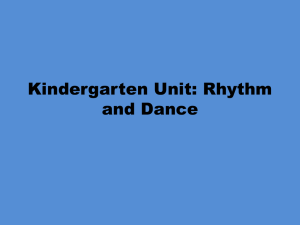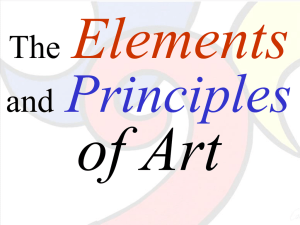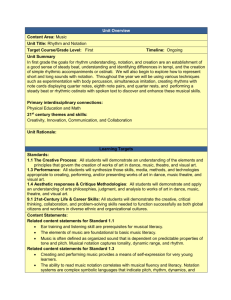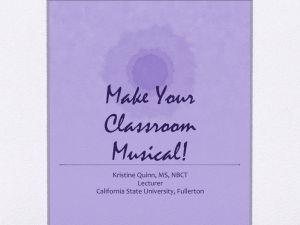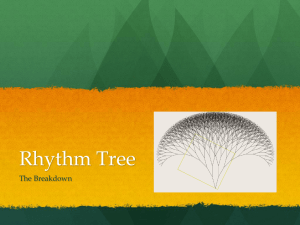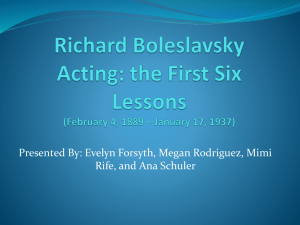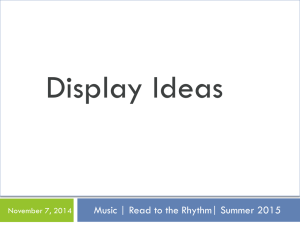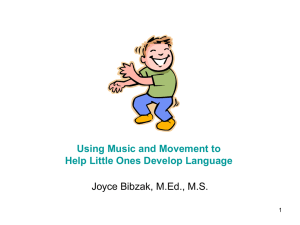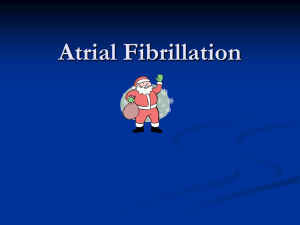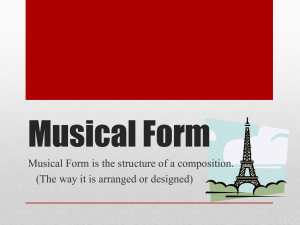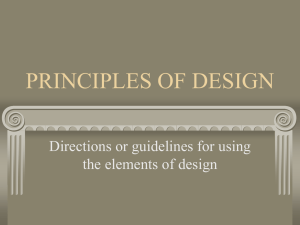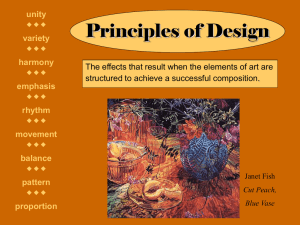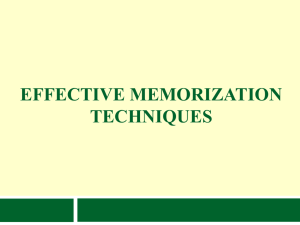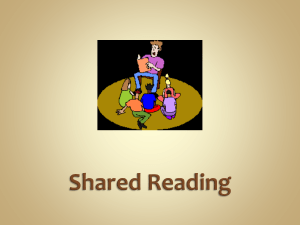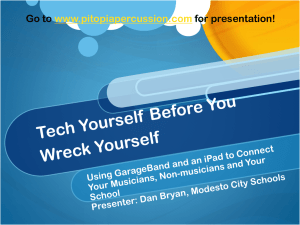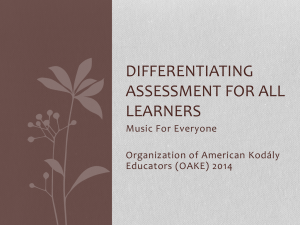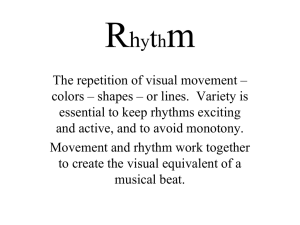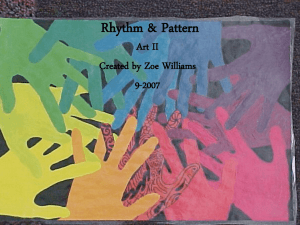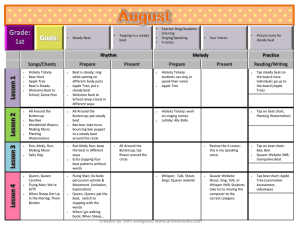Rhythm
advertisement
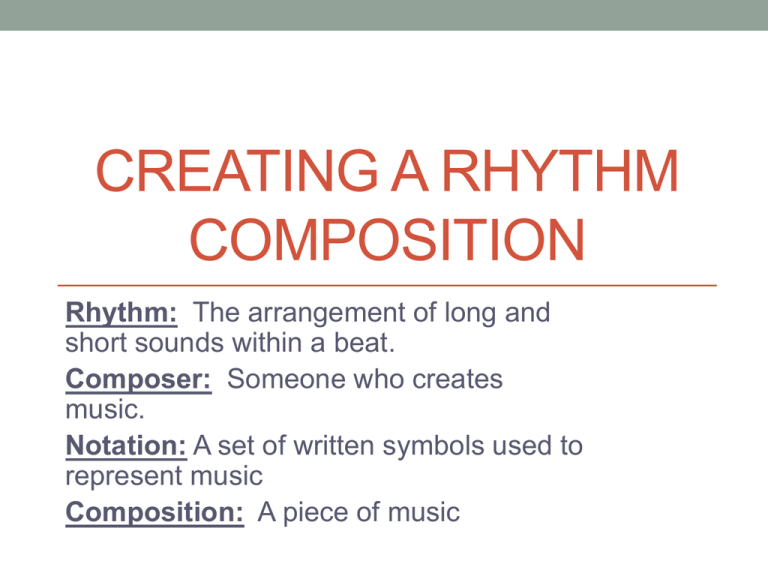
CREATING A RHYTHM COMPOSITION Rhythm: The arrangement of long and short sounds within a beat. Composer: Someone who creates music. Notation: A set of written symbols used to represent music Composition: A piece of music Rhythm Notation Vocabulary • Whole Note • Whole Rest • Dotted Half • Half Rest Note • Half Note • Quarter Note • Eighth Note • Sixteenth Note • Quarter Rest • Eight Rest Notation Vocabulary • Time Signature: Shows the beat of the music and how many beats per measure • Bar line: Divides music into measures • Double Bar Line: Shows the end of the composition • Repeat Sign: Shows to repeat the composition or a section of the composition • Measure: The group of music in between bar lines Find the following in the composition: • Whole Note • Half Note • Quarter Note • Eight Note • Sixteenth Note • Time • • • • Signature Bar Line Measure Double Bar Line Repeat Sign Complete this pyramid so that each line equals four beats. Remember each note has a different number value of beats. Whole= 4 beats Half= 2 beats Quarter= 1 beat Eighth= ½ beat Sixteenth= ¼ beat Let’s work with time signatures Can you add these music math problems? Let’s compose a Rhythm Composition together…. Requirements : 4 measures long in 4/4 time. Use at least four different rhythms/rests. Make a “final- sounding” ending. Rhythm Packet Practice • With a partner create four measures of rhythm in 4/4 time. • When done, raise your hand for me to check the math. • If correct, practice counting what you created while clapping the rhythm together (Help each other…you should sound like one person!). • Make sure you are starting together, staying together and stopping together. Rhythm Composition #1 Task: Create, notate and perform a rhythm composition with a partner. Step 1 • Using the rhythm packets, create a rhythm composition with your partner. • As you create, work together towards an interesting composition Composition Requirements: • 4 measures long in 4/4 time. • Use at least four different rhythms/rests. • Make a “final- sounding” ending. Step 2 • Notate your composition clearly so that anyone else could read and perform it. • Reflect on the “Notating your Composition” Rubric before handing in your composition. • Hand in final copy. Step 3 • You will get your final copy of your composition back. • Select rhythm instruments to perform your composition for the class. • Practice, reflecting on the “Performing your Composition” Rubric • Perform your composition from your notation with instruments. “Notating your Composition” Rubric Exceeds • • • Meets Our composition is • interesting. Thought was put into the sound and flow of the piece. • Our composition is notated clearly and • neatly. Our time spent composing and notating was used wisely and to the fullest! Progressing Needs Work Our composition meets all the requirements. • Our composition is • missing some of the requirements. Our composition is neatly notated. • The notation of our composition is hard to read or notated incorrectly. Our time spent composing and notating was used wisely. • We could have used our time spent composing and notating better. • We noted rhythms on the paper but we did not demonstrate an accurate understanding of rhythm. We did not work well together or use our time spent composing and notating wisely. “Performing Your Composition” Rubric Exceeds Meets Progressing Needs Work • The performance of our notation was played with ease. • The performance of our notation was accurate. We played what we wrote. • • The performance of our notation was incorrect for most of the performance. • Our counting of the rhythm was precise and together. • We maintained a steady beat throughout the performance (The tempo did not change). The performance of our notation was accurate for the most part. We played what we wrote with a few mistakes BUT… • We lost our place in the music. • We did not maintain a steady beat (the tempo sped up or slowed down) OR… • We did not demonstrate an understanding of counting rhythm. • We did not start together, stay together or stop together OR… • We did not work well together or use our practice time wisely. • Our counting of the rhythm was incorrect a • We could have used our practice time better. • Our time spent practicing was used wisely and to the fullest! • • • We started together, stayed together and stopped together. Our counting of the rhythm was correct. We used our practice time wisely.
